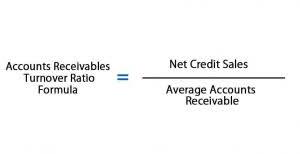If it meets that criteria, there’s a good chance it’s a legitimate expense. If the expense is reasonable and necessary for the operation of your business, it’s an allowable expense. I’m going to guess that bookkeeping is one of those things you may wish were never part of the deal. Not many of you are going to say bookkeeping is your favorite part of the delivery biz. As we get into the last quarter of the year, some of you are starting to think about things like taxes and all that.

One of the first things you will want to do as an independent contractor is to set up a separate checking account for your business. In fact, depending on your industry, you may want a few business checking accounts. If you work in construction as an independent contractor, you may have one account for payroll, one for vendors and one for your revenues.
Best Full-Service App
It may also be helpful to consult with a tax professional to ensure that you are in compliance with all tax laws and regulations. As an independent contractor, it is important to understand your tax obligations. This includes understanding the types of taxes you are responsible for, such as income and self-employment taxes.
- But these cost more than some competitors, so if you process a lot of payments, you may end up paying more with Wave’s “free” accounting than you would with a paid app.
- The trade-off is that your employers do not put money towards your health insurance, workers’ compensation, bonuses, unemployment taxes, payroll taxes, or contribute to your 401(K).
- In the case of an audit, it is helpful to have everything separate, primarily if you classify yourself as a business.
- That’s why it’s crucial to keep business and personal expenses separate by opening separate bank accounts.
- With unit price, risk tends to be shared between the contractor and customer, since production quantities can end up higher than estimated.
- Let’s look at just a few contract types and billing formats.
I think there’s going to be one big party on New Year’s Eve. Reporting requirements for a particular union may exist on a national or a local level. Contractors can typically determine their requirements, especially when entering another jurisdiction, by checking with their local union business manager. Billing a fixed-price contract often happens on a percentage-of-completion basis with retainage withheld. Keep more documentation than you think you need, and keep more notes about your finances than you think you will require. If there is ever any question about your records, you want to be able to answer fully and honestly.
ACA & W-2 Services
The second part of bookkeeping is, when you’ve tracked the transactions (both income and expenses) now you need to organize them into transaction types. Apart from multiple prevailing wage and union rates, contractors commonly deal with multiple rates for numerous other reasons. Working on jobsites in multiple cities and states, employees may have multiple tax withholdings all within a single payroll. Control is transferred when the constructed asset becomes the customer’s to own. If it’s on the customer’s land, the foundation of a building might come under the customer’s control as soon as it’s poured, the frame as soon as it’s put up, etc. With a total development project, transfer of control might not be until the contractor hands over the keys.
Use a journal, spreadsheets, or construction accounting software to record day-to-day transactions like accounts payable, accounts receivable, labor costs, and material costs incurred. You’ll want to include a description of each transaction, bookkeeping for independent contractors the date of the transaction, and the revenue received. Keeping track of taxable income is an important aspect of bookkeeping for independent contractors. This includes recording all clients’ income and any other taxable income sources.
Bench
That kind of thing makes a big difference when you are looking for a mortgage or need other types of verification. When you’re an employee, your income is easily verified by things like your pay stubs and W-2 forms. This goes back to the difference between an employee and an independent contractor. Or keep track of everything so that you only have to pay on what’s left over. The thing is, we have to do these deliveries on our own dime.
- As a business, you will need to pay taxes and keep up with your bookkeeping as well.
- While there are short-term benefits, like not paying taxes on that money, it is not worth being caught during an audit.
- Consider the cost of insurance, travel, workers’ compensation, materials, subcontractors, equipment, and more.
- Or keep track of everything so that you only have to pay on what’s left over.
- We chose QuickBooks because we believe it has the most features, ease-of-use, and pricing that most independent contractors will need.
- By tagging every transaction with information from the job cost structure, contractors are able to see a whole new dimension to their costs.
- Importantly, they can also identify costs shared between multiple jobs, like equipment, and calculate a fair way to distribute those costs, which is called overhead allocation.
For most independent contractors, it will be beneficial to bring in a CPA to at least help during tax season. A good accountant can help you with tax season and also create and decipher financial reports like your balance sheet, income statement, statement of cash flow, and more. It gives you a more transparent look into where your business is right now and how it is trending.
If you are not diligent in separating your personal and business bank accounts, you might get paid directly to your personal account. Independent contractors need to pay the IRS self-employment taxes. Currently, that means you will pay social security 15.3%-12.4% and Medicare 2.9%.

Reconcile your accounts at the end of each month to make sure your books and accounts accurately reflect your income and expenses. Accounting software can be helpful, and hiring a professional from a firm that offers small business accounting services can be even more so. Most independent contractors can benefit from hiring a CPA to help during tax time to help prevent potential mistakes.